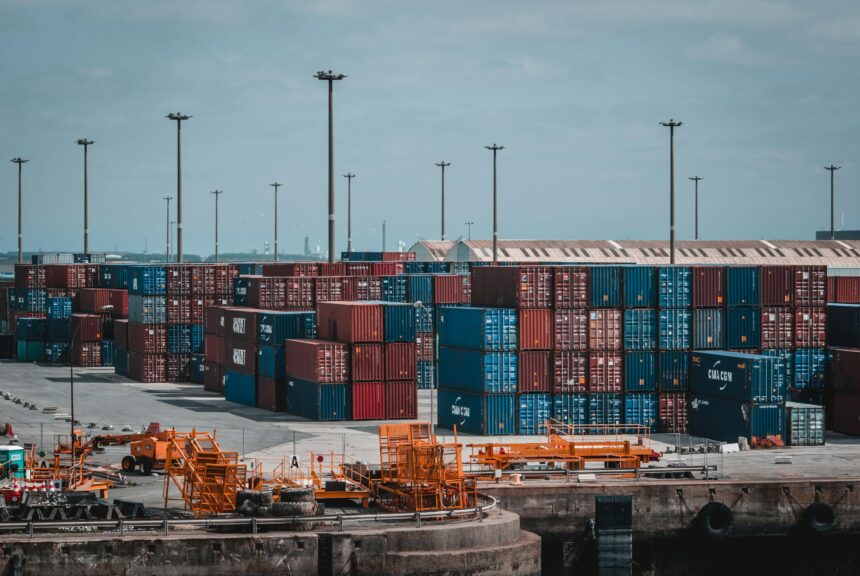The challenge is that global trade is no longer just about moving goods quickly. It is about moving them correctly. Governments want accurate declarations, transparent processes, and proof that businesses follow regulations. For companies trying to expand across borders, compliance is no longer a box to tick at the end of the shipping process. It is becoming a key business strategy that determines who gets shipments cleared on time and who ends up with costly setbacks.
- The Growing Complexity of Global Trade Rules
- Where Businesses Struggle Most with Compliance
- The Rising Link Between Compliance and Reputation
- Technology’s Role in Smarter Compliance
- Compliance Challenges in the E-Commerce Boom
- Duty Drawbacks as an Untapped Opportunity
- Navigating Multiple Regulatory Agencies
- Preparing for the Future of Global Trade
This article explores why compliance now carries as much value as currency in international trade.
The Growing Complexity of Global Trade Rules
International trade rules have become far more complex over the last decade. Countries are creating new regulations to address economic security, protect domestic industries, and monitor what enters their borders. These changes are happening at a rapid pace.
For businesses, this complexity can be overwhelming. A company shipping electronics from Asia to Europe may face entirely different rules than a company sending pharmaceuticals to the United States. As governments place stronger emphasis on compliance, businesses must keep up with these changes or risk delays, penalties, and strained trade relationships.
Where Businesses Struggle Most with Compliance
While most businesses recognize the importance of compliance, many still struggle to manage it effectively. The most common challenge is documentation. Even a small error, such as a wrong tariff code or incomplete paperwork, can stop a shipment in its tracks.
Another problem area is classification of goods. Every product must be assigned the correct code under international trade systems, and misclassification can lead to incorrect duty rates or accusations of fraud. Tariffs and taxes also create confusion, especially for businesses that ship to multiple countries with different rules.
This is where the expertise of a customs broker becomes essential. A professional ensures that goods meet all legal requirements before they reach their destination. They understand the regulations of different countries and can prepare the necessary paperwork to match those rules.
The Rising Link Between Compliance and Reputation
Compliance is not only about avoiding penalties. It also shapes how a business is viewed by its partners, customers, and regulators. Companies that consistently meet compliance standards build stronger relationships with shipping carriers, government agencies, and suppliers. These relationships create smoother trade processes and open the door to new opportunities.
On the other hand, repeated non-compliance damages credibility. A company known for frequent errors or regulatory violations may find itself under stricter inspections or even lose business contracts. In today’s competitive global market, reputation carries significant weight. Compliance is directly tied to trust, and businesses that prioritize it stand out as reliable and professional partners.
Technology’s Role in Smarter Compliance
Technology is reshaping how businesses manage compliance. Automated systems now check trade documents against regulatory requirements in seconds, reducing the chance of human error. Digital platforms also help track shipments in real time, giving businesses early warnings about potential delays.
Artificial intelligence and machine learning tools are becoming more common in trade compliance. These systems can identify patterns in shipments, detect anomalies, and even recommend accurate product classifications. According to Deloitte, automation can reduce compliance processing time by up to 80%. For companies handling large volumes of shipments, this kind of efficiency can make the difference between on-time delivery and costly disruptions.
Technology cannot replace human expertise, but it can support it. Businesses that combine digital tools with compliance specialists are best positioned to meet regulations consistently and avoid risks.
Compliance Challenges in the E-Commerce Boom
The global e-commerce market continues to grow at double-digit rates each year. This boom has created new challenges for compliance. Unlike bulk shipments, e-commerce involves a high volume of small parcels, each of which must meet customs requirements.
Governments are paying closer attention to this trend. In 2021, the European Union ended its exemption for low-value imports, meaning even the smallest parcels now face customs duties and VAT checks. Similar measures are being adopted in other regions to protect domestic markets and increase tax revenue.
For online sellers, this means compliance cannot be an afterthought. A single customer order may cross multiple borders, and failing to meet requirements can lead to customer dissatisfaction and higher costs. Companies that sell internationally must invest in processes and tools to ensure every parcel meets the necessary standards.
Duty Drawbacks as an Untapped Opportunity
Many businesses overlook duty drawbacks, even though they can save significant amounts of money. A duty drawback is a refund of duties paid on imported goods that are later exported, either as they are or after being manufactured into another product. In the United States, for example, businesses can recover up to 99% of duties paid under certain conditions.
The U.S. Customs and Border Protection agency processes billions of dollars in duty drawback claims each year. Yet many eligible businesses never apply because they are unaware of the process or find it too complex. This is where proper compliance pays off. Accurate record-keeping and correct documentation make it possible to take advantage of these refunds. Companies that build compliance into their operations are better positioned to claim these benefits and improve profitability.
Navigating Multiple Regulatory Agencies
Customs clearance is only one part of the compliance process. Many industries must also meet the standards of other government agencies. For example, pharmaceutical imports are subject to approval from health regulators. Agricultural goods must meet strict food safety rules. Electronics may need certification to ensure they do not interfere with communication networks.
These overlapping requirements add another layer of complexity. A shipment may pass customs but still face delays if it does not meet the standards of other agencies. Businesses need a coordinated approach to compliance that goes beyond customs paperwork. Understanding the full range of regulatory requirements in each target market is essential for smooth international trade.
Preparing for the Future of Global Trade
The future of trade will bring even stricter compliance requirements. Environmental regulations are already shaping shipping policies, with new rules limiting carbon emissions and requiring more sustainable practices. Regional trade agreements are introducing new reporting standards and digital customs platforms. At the same time, geopolitical tensions are leading to sudden changes in tariffs and sanctions.
Businesses cannot afford to treat compliance as optional. They need to build flexible systems that can adapt to changing laws. Regular training, investment in technology, and partnerships with compliance experts will help companies stay competitive in this environment. Those who plan ahead will be able to respond quickly to new rules and continue expanding globally.
Compliance has become one of the most valuable tools in international trade. It is no longer limited to avoiding penalties. It shapes costs, delivery times, and business relationships. Companies that prioritize compliance save money, build stronger reputations, and open new opportunities in global markets.
The rise of e-commerce, stricter regulations, and growing attention from multiple agencies all point to the same trend: compliance is central to long-term success. Businesses that embrace it now will be better prepared for the future of global trade. In today’s world, compliance is indeed the new currency, and those who understand its value will remain ahead of their competition.














